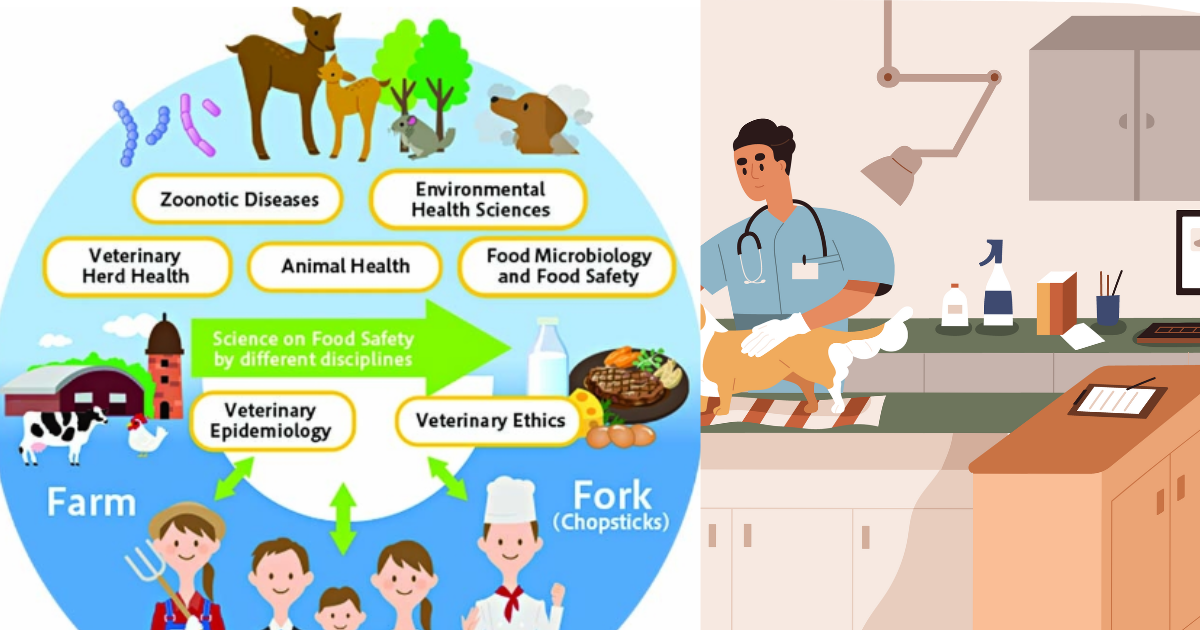Introduction
When we think about healthcare professionals, doctors and nurses typically come to mind. However, there is another group of dedicated individuals who play a vital role in advancing
global welfare: veterinarians. These unsung heroes work tirelessly to ensure the well-being of animals, safeguard public health, and contribute to global sustainability. From companion animals to wildlife conservation, veterinarians are at the forefront, impacting not only animals but also humans. In this blog, we will explore the significant role veterinarians play in promoting the welfare of the world as a whole.
Animal Health and Welfare
Veterinarians are responsible for the healthcare and welfare of animals, ranging from beloved pets to livestock and wildlife. They conduct routine check-ups, diagnose illnesses, and provide necessary treatments to keep animals healthy and happy. By addressing disease prevention, nutrition, and behavioral concerns, veterinarians enhance the quality of life for animals, promoting their overall well-being.
Zoonotic Disease Control
Zoonotic diseases, which can be transmitted between animals and humans, pose a significant threat to global health. Veterinarians play a pivotal role in controlling and preventing the spread of such diseases. They monitor and diagnose animal diseases, helping identify potential outbreaks and implementing effective measures to minimize the risk to both humans and animals. Their expertise in zoonotic diseases is instrumental in disease surveillance, early detection, and rapid response.
Public Health
Veterinarians are an integral part of public health systems worldwide. They collaborate with physicians, epidemiologists, and other healthcare professionals to safeguard human health. Through their knowledge of zoonoses and food safety, they ensure the safety of the food supply chain. They also contribute to disease control efforts, vaccination programs, and health education campaigns, protecting communities from various health threats.
One Health Approach
The One Health concept recognizes the interconnectedness of human, animal, and environmental health. Veterinarians are at the forefront of applying this approach, promoting a holistic understanding of health and well-being. By considering the interdependencies between humans, animals, and ecosystems, veterinarians identify and mitigate potential health risks, leading to sustainable and healthier communities.
Environmental Conservation
Veterinarians play a crucial role in wildlife conservation and biodiversity protection. They work closely with conservation organizations and researchers to study and address health issues affecting endangered species. By treating and rehabilitating injured or sick wildlife, veterinarians contribute to the preservation of ecosystems and maintain ecological balance.
Agricultural Development and Food Security
In a world facing food security challenges, veterinarians play a vital role in ensuring the health and productivity of livestock. They provide expert advice on animal husbandry practices, disease prevention, and treatment, helping farmers enhance livestock productivity. By promoting sustainable agriculture and livestock management, veterinarians contribute to global food security, economic growth, and poverty reduction.
Conclusion
The impact of veterinarians on the overall welfare of the world cannot be overstated. Their work spans animal health and welfare, zoonotic disease control, public health, environmental conservation, agricultural development, and food security. By addressing the intricate web of connections between humans, animals, and the environment, veterinarians help create a healthier, more sustainable world. As we recognize their tireless efforts and unwavering dedication, it becomes clear that veterinarians are essential in ensuring the well-being of both animals and humans, leaving an indelible mark on global welfare.
FAQ’s
What is the role of a veterinarian?
Veterinarians are responsible for the healthcare and well-being of animals, including diagnosing and treating illnesses, conducting surgeries, and providing preventive care.
Can veterinarians treat both domestic and wild animals?
Yes, veterinarians can treat both domestic animals, such as pets and livestock, and wild animals, particularly those in conservation and rehabilitation settings.
Are veterinarians involved in public health?
Absolutely, veterinarians play a crucial role in public health. They contribute to disease control, zoonotic disease surveillance, food safety, and collaborate with other healthcare professionals to protect human health.
Do veterinarians work towards environmental conservation?
Yes, veterinarians are actively involved in wildlife conservation efforts. They work with conservation organizations to study and address health issues in endangered species, contributing to the preservation of ecosystems.
How do veterinarians contribute to food security?
Veterinarians provide guidance on animal husbandry practices, disease prevention, and treatment to enhance livestock productivity. Their expertise promotes sustainable agriculture and livestock management, thus contributing to global food security.





